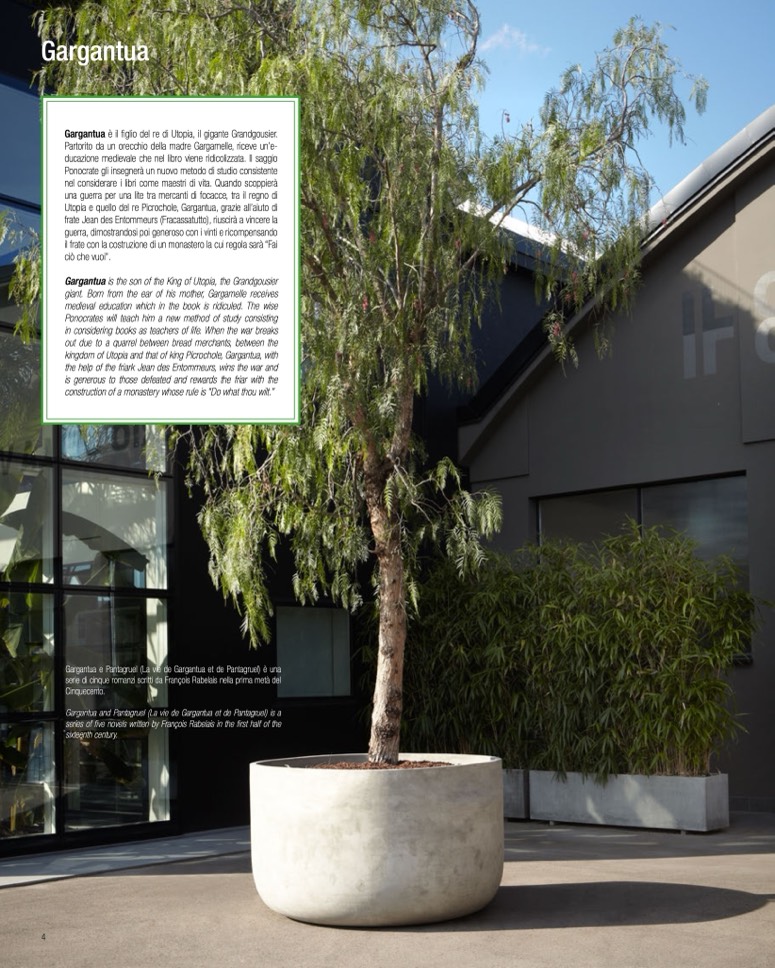
Gargantua
Gargantua è il figlio del re di Utopia, il gigante Grandgousier.
Partorito da un orecchio della madre Gargamelle, riceve un’e-
ducazione medievale che nel libro viene ridicolizzata. Il saggio
Ponocrate gli insegnerà un nuovo metodo di studio consistente
nel considerare i libri come maestri di vita. Quando scoppierà
una guerra per una lite tra mercanti di focacce, tra il regno di
Utopia e quello del re Picrochole, Gargantua, grazie all’aiuto di
frate Jean des Entommeurs (Fracassatutto), riuscir
à a vincere la
guerra, dimostrandosi poi generoso con i vinti e ricompensando
il frate con la costruzione di un monastero la cui regola sarà “Fai
ciò che vuoi”.
Gargantua is the son of the King of Utopia, the Grandgousier
giant. Born from the ear of his mother, Gargamelle receives
medieval education which in the book is ridiculed. The wise
Ponocrates will teach him a new method of study consisting
in considering books as teachers of life. When the war breaks
out due to a quarrel between bread merchants, between the
kingdom of Utopia and that of king Picrochole, Gargantua, with
the help of the friark Jean des Entommeurs, wins the war and
is generous to those defeated and rewards the friar with the
construction of a monastery whose rule is “Do what thou wilt.”
4
Gargantua e Pantagruel (La vie de Gargantua et de Pantagruel) è una
serie di cinque romanzi scritti da François Rabelais nella prima metà del
Cinquecento.
Gargantua and Pantagruel (La vie de Gargantua et de Pantagruel) is a
series of five novels written by François Rabelais in the first half of the
sixteenth century.

